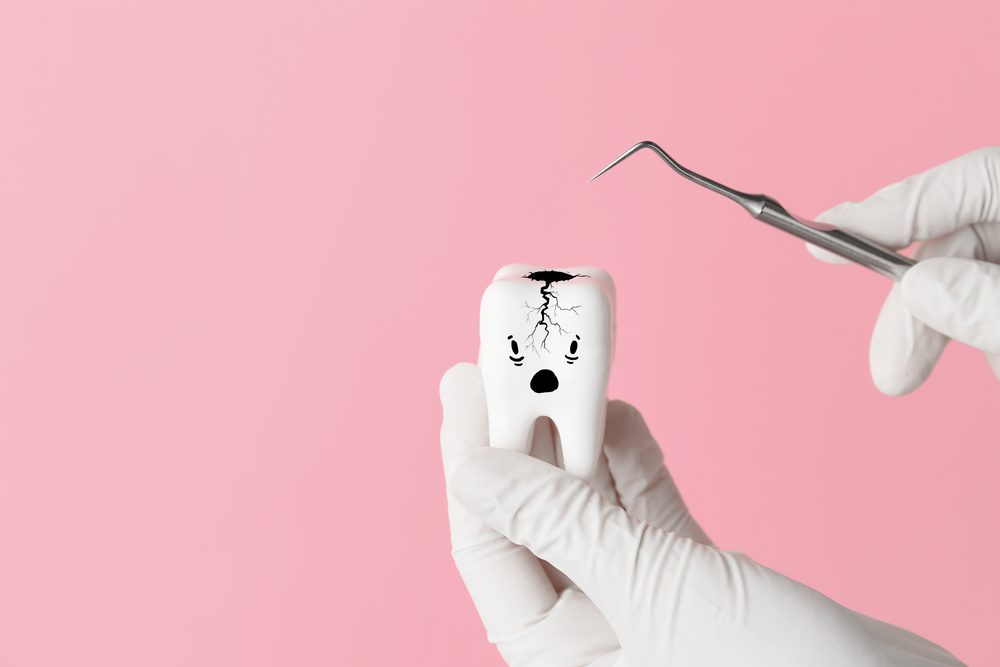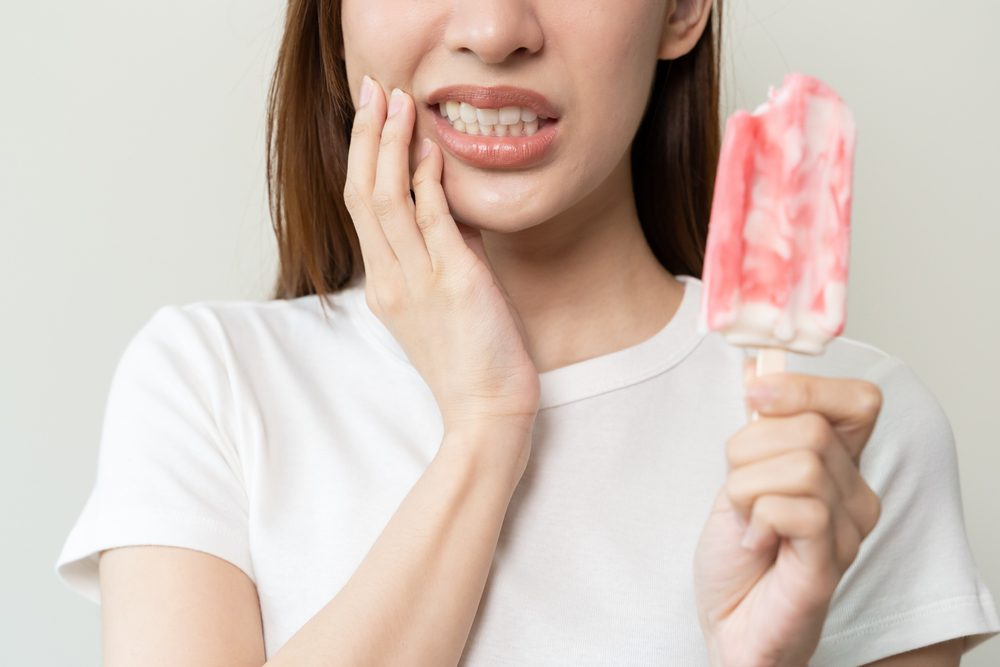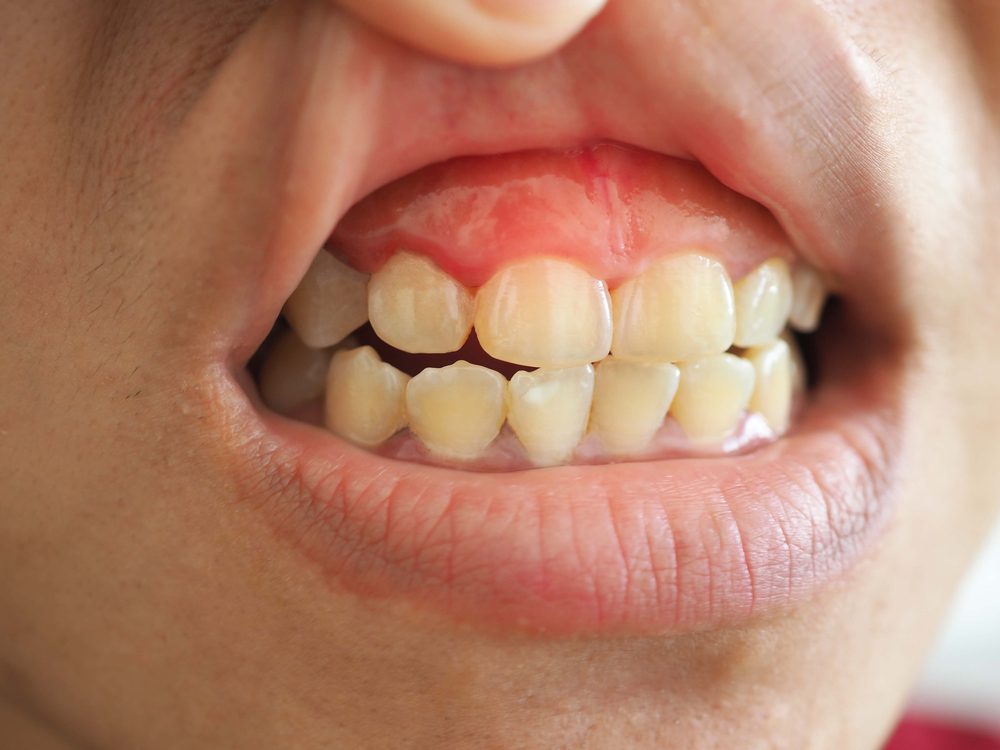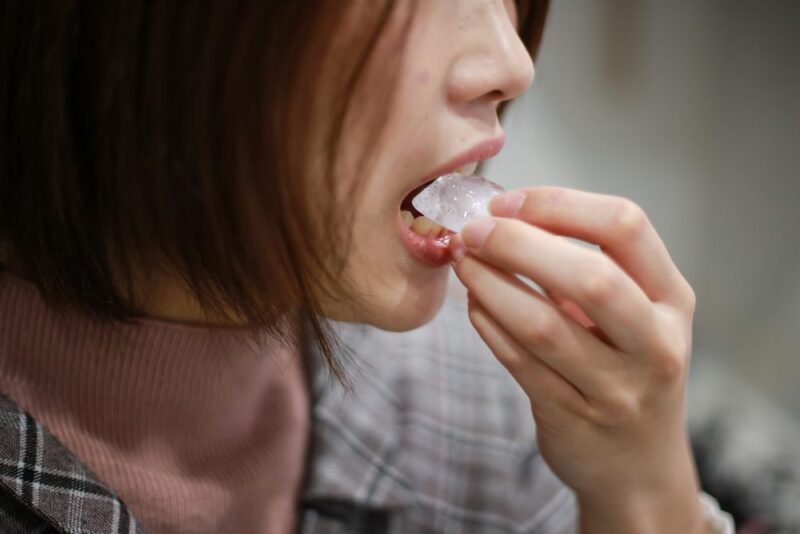Dental Care Tip of the Season
Don’t Chew Ice!
Imagine taking the last sip of your refreshing summer lemonade or ice-cold water; what will you do with all the ice left at the bottom? It can be tempting to chew on those leftover cubes and cool down with the sweltering summer heat, but did you know this habit harms your teeth and gums?
At Daniel W. Fridh, DDS, we are here to equip you with healthy dental care practices and inform you of harmful habits to avoid. Learn about the dangers of chewing ice, more nutritious alternatives, and more!
Risks & Consequences of Chewing Ice
Chewing ice may seem like a harmless, refreshing habit, but it can lead to serious tooth damage. Our teeth are strong but not designed to withstand the force and pressure of biting down on hard substances like ice.

Damaged Tooth Enamel
Tooth enamel is one of the hardest substances in your body, and it protects the innermost layers of your tooth from damage. Enamel is remarkable but can be weakened by many factors, such as harmful bacteria, plaque buildup, and even acidic foods. Surprisingly, another culprit that can damage enamel – and your smile – is chewing ice. The friction and stress placed on your teeth’s enamel when chewing ice can cause the enamel to deteriorate over time. The extremely cold temperature and wear and tear can weaken and potentially crack your tooth, leading to …
↓

Tooth Sensitivity
If your enamel begins to erode, it exposes the delicate layers of your teeth to air, food, drinks, and even ice. This vulnerability not only puts you at risk for cavities but can also lead to heightened sensitivity to hot and cold temperatures. Any discomfort or pain in your teeth should be taken seriously, as it could indicate an underlying issue. Teeth sensitivity may reveal the presence of a small or large cavity. If left untreated, these cavities can worsen and potentially result in tooth infections and painful abscesses, including your gums.
↓

Gum Infections
When your tooth enamel becomes weak and your teeth become sensitive to hot and cold, it’s essential to be aware of the potential risks that lie ahead. We want to ensure you’re well informed about the connection between weakened enamel and gum infections, known as periodontitis. Gum infections can cause damage to the delicate soft tissues surrounding your teeth, which in turn can lead to the deterioration of the supportive bone. We care about your oral health and want to help you avoid these consequences. One way to protect your teeth and gums is by avoiding chewing ice. We can work together to maintain a healthy smile that lasts a lifetime by taking small proactive steps. Remember, your smile is our priority at Daniel W. Fridh, DDS!
Understanding the Underlying Causes
Like any habit, there is typically an underlying cause as to why we fixate on it. For some, drinking a diet soda gives energy, while for others, chewing ice provides relief. The habit of chewing ice can indicate an iron deficiency as they alleviate fatigue or weakness. This habit can also be a way to cope with stress and anxiety. While these causes may be subconscious, recognizing the connection between the cause and practice are the first step towards breaking the negative habits and building positive ones.
At Daniel W. Fridh, DDS, we believe in taking a personalized approach to dental care. We understand that our patients are unique and that addressing their dental concerns requires careful attention to their individual needs and experiences. Contact us today to schedule an appointment.
Alternatives Prioritizing Your Dental Health
Breaking any habit can be challenging; chewing ice doesn’t fall out of this category. However, many alternatives prioritize your dental health, including but not limited to the following:
1. Let the Ice Melt
Instead of crunching it all at once, let it slowly melt in your mouth. By savoring the experience, you can enjoy the same satisfying refreshment while also prolonging the enjoyment. One of the great benefits of allowing the ice cube to melt is that the refreshing sensation will last longer in your mouth than quickly chewing on the entire ice cube. This way, you can savor the moment and make the most of your icy treat.
2. Try Sugar-Free Cold Drinks or Shaved Ice
A great option is to switch to cold drinks or popsicles. Not only can these provide a refreshing feeling, but they also help hydrate your mouth without putting your dental health at risk. Similar to the joy of slushies, you can also experiment with shaved ice or soft ice, often called nugget ice. These types of ice are even more delicate and effortlessly melt inside your mouth.
3. Experience the Crunch with Healthy Snacks
Instead of chewing on ice, why not try delicious and nutritious options like carrots, apples, and cucumber slices? These snacks offer a fantastic alternative to crunching on ice and provide you with a dose of essential nutrients. They are packed with vitamins and minerals that benefit your overall health.
Crunchy veggies like carrots and celery take snacking to the next level because they have an excellent side effect – they stimulate saliva flow. Why is saliva so important? Well, it’s a natural defense against cavities and gum disease. So by enjoying these veggie treats, you’re satisfying your craving for something crunchy and helping protect your oral health.
Contact Daniel W. Fridh, DDS, Today!
Remember, while chewing ice might seem harmless, the repetitive and forceful action is anything but! This habit can lead to dental health problems like weakened enamel, uncomfortable tooth sensitivity, and an increased risk of gum infections! By opting for healthy alternatives like cold drinks and crunchy snacks, you can enjoy the refreshing experience without risking your dental health!
At Daniel W. Fridh, DDS, your oral health is our primary concern, and we strive to equip you with the tools and knowledge to take care of your smile! Contact us today to schedule an appointment with us!

